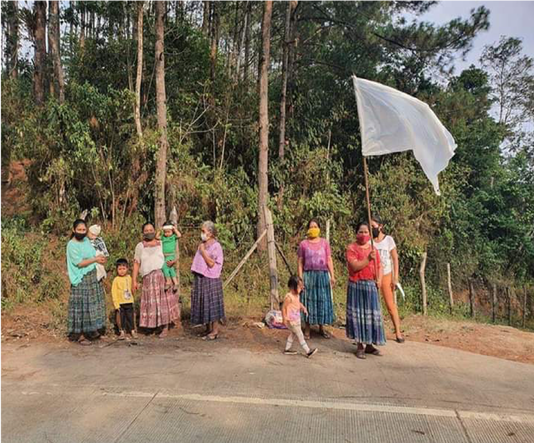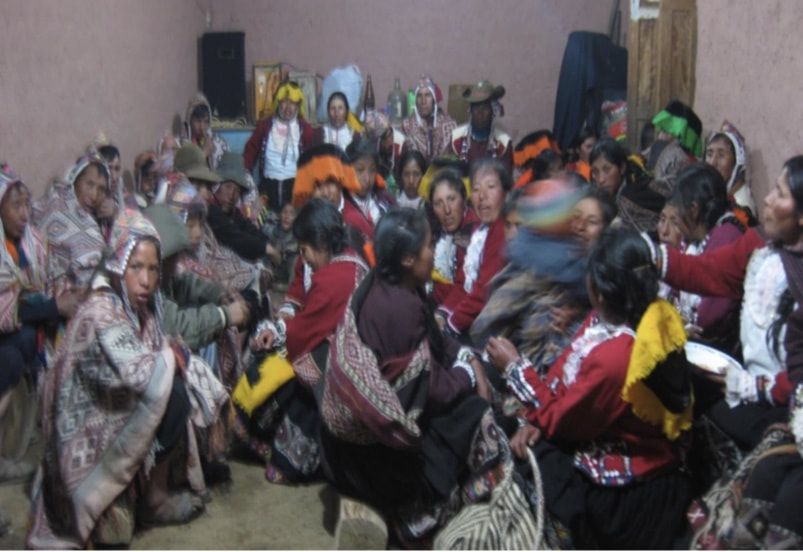They [Women Elders] are the ones who carry our culture. They teach our languages and they feed the big families." – Leonor Teni |
Indigenous communities of Peru and Guatemala are strong and resilient, but they are facing dire conditions in the face of Covid-19. Many in these communities are respected Elders, who carry traditional knowledge that is important for future generations in sustaining Indigenous communities and lifeways. In fact, these ancient knowledge systems have contemporary value for all of humanity.
The Quechua communities in Peru and Maya Q’eqchi’ communities in Guatemala that we work with are culturally strong, carrying deep knowledge of living harmoniously with the land. A lot of the grassroots work that was done pre-pandemic was centred around sustaining traditional knowledges in both regions and specifically the traditional knowledge of female Elders in Maya Q’eqchi’ communities. It is critical that we support these community initiatives through this difficult time to sustain knowledge systems through the protection of Elders who are most vulnerable in the current pandemic. So many communities who have tremendous cultural strengths and knowledge are also already living day-to-day. The pandemic is now forcing them to deal with the dual risks of hunger and contracting Covid 19, with the transportation systems and markets having been shut down. In response, grassroots initiatives are being led both in Peru and Guatemala within communities where Plenty Canada has developed strong relationships over the years. Many families are suffering hunger and deprivation. Their lives have been severely disrupted by the pandemic and by the official restrictions on all travel. The projects are run by local Indigenous volunteers in the effort to help their extended communities. In Peru, poverty and extreme poverty have Indian first and last names." - Lucio Ylla Meza |
Guatemala: Casa Q’eqchi Pandemic Response Initiatives
|
The two goals of the grassroots Casa Q’eqchi Pandemic Response Project in Guatemala are to provide baskets of food and basic supplies to 180 families for a six-month period, and to provide educational materials about COVID-19 in the Q’eqchi language. The baskets will not feed entire families, but they will provide enough materials to support Elder women and two other family members. These families live in two communities; San Pedro Carcha, and Coban, Alta Verapaz. Each basket costs $50USD (around $70CAD), consisting of essential food, and health and hygiene products to prevent the spread of Covid-19.
|
|
Peru: Muruwiqsa Initiative
|
In Peru, the grassroots Muruwiqsa Initiative is also working towards providing baskets to the two Quechua communities of Chawaytiri and Pampallaqta in the Pisac valley of the Cusco region, where there are hundreds of families in need. There is no government support, or even outreach, in these deeply impacted communities where there was a reliance on the tourist market for their weavings, but all of that activity has been paralyzed since March. A shift to greater reliance on Indigenous agriculture will take time. The baskets consist of essential food, health and hygiene products to prevent the spread of Covid-19 and cost around $50 USD (around $70CAD) to support five people.
|
|
Our Apus and the Mother Earth certainly will not allow that this pandemic and its illnesses make us disappear.” “Please, brothers and sisters of the world, help us today and tomorrow we will return the favor largely.” – Chawaytiri community |
|
Show solidarity by supporting these community-led responses to Covid-19, assisting Elders and others who are most affected by this pandemic.
|


